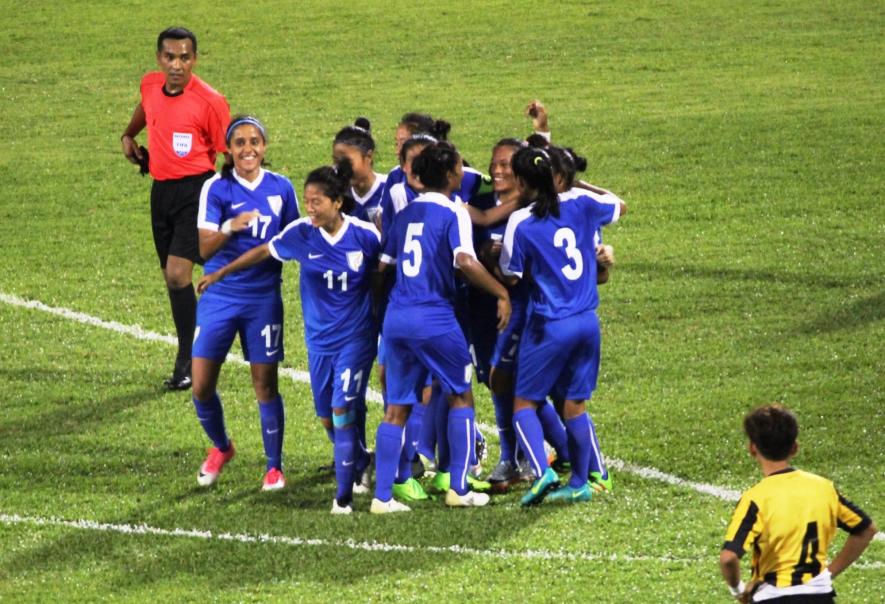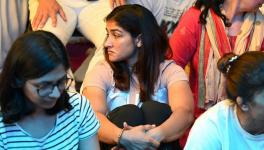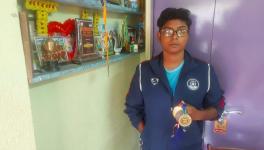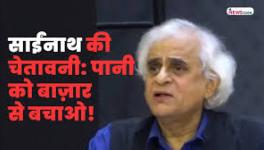Indian Football Team’s Asiad Outing in Limbo as IOA, AIFF Play ‘Approval’ Drama

Indian women's football team has not played since an international friendly against Malaysia in July last year. The squad has been convened now for the Asian Games preparatory camp starting on June 20 in Bengaluru (pic credit: IANS).
Despite the seismic change (of perception and play) in Indian football, there is still a lot left to be ironed out. The status quo is best illustrated by the fact that the fate of Indian football’s next major appearance -- the Asian Games in Jakarta in August -- is still up in the air.
Despite the recent victory of the men’s side in the Intercontinental Cup, there is still no guarantee that we will see India at the Asian Games. Prior to the Intercontinental Cup final in Mumbai, coach Stephen Constantine was unclear about India’s participation in Jakarta because of the pending clearance from the Indian Olympic Association (IOA), which is essential to gain accreditation and process other paperwork for the players with the Asiad organising committee. The All India Football Federation (AIFF) confirmed it is still waiting for the go-ahead for both the men’s and women’s teams.
Kishore Taid, COO, AIFF, said reports of their participation being cleared are “factually incorrect”. “We have still not received any formal notification for the Asian Games from the IOA,” he added. “So it will be untrue to say that we are going, as of now. Everything is pending.”
READ MORE | Sunil Chhetri’s Appeal Is Much More Than a Mere Call for Fan Support
AIFF insisted that they have applied for approval, while the IOA said the football teams don’t meet its criteria and that it has not received any formal request. The whole episode reeks of the bureaucratic wranglings that have marred Indian sport for ages, and football players stands to lose in this one.
“We haven’t received anything from them [the AIFF] to give any approval,” Rajeev Mehta, secretary general of the IOA, said. “The IOA guidelines are clear. For individuals, they have to be ranked in top six, and teams in top eight. If they meet the guidelines, then they are free to go [for the Asian Games].”
Indian men’s team is ranked 14th, while the women are placed 13th in Asia and do not meet the IOA’s criteria. Football at the Asian Games has never had any qualification criteria in itself. Any OCA (Olympic Council of Asia) member country can field a team at the event.
AIFF insists football, despite its low ranking among the Asian countries, deserved to be at the Asian Games as its “growth rate” has been great.
“The football team is one of the teams with the fastest growth rate in Indian sport right now. Keeping that as a line of reasoning, as well as the fact that this is a good event to send youngsters to, we have applied to the IOA for clearance,” he explained.
READ MORE | When Will France’s Million Dollar Babies Turn Up at FIFA World Cup?
However, the growth of football the federation officials talk about is confined only to the men’s game.
In 2013, before the Asian games in Incheon, the women’s team was ranked 49th in the world (The official AIFF website, with their blinkers on, still believe this to be true). Since then though, there has been a gradual slump. They are now ranked 59th in the world (conversely, the men’s team have risen to reach the top 100).
Rare chance for women
The men’s competition at the Asian Games is essentially an Under-23 event, with three senior players allowed in the squad. The women’s event has no such restrictions and hence is a full blown continental event, which will give the Indian team an opportunity to gain valuable experience at the highest level.
For the women team, the event guarantees them a chance to gain valuable game time. In the past four years, the women’s football team has played 20 games -- a mere four of which have been competitive fixtures. They played just two games (Olympic qualifiers) in the whole of 2015 and the last match they played was an international friendly against Malaysia last July.
READ MORE | FIFA World Cup: Flies in Mouth, Nervy England Edge Out Tenacious Tunisia
For them, a spot at the Asian Games isn’t just about donning the country’s jersey and playing for pride. It is about allowing professional footballers game time, experience, and a chance to do what they most love -- play football and get better at what they do and, in the process, gain valuable ranking points for the country.
Members of senior men’s team have played long seasons, and also featured in multiple AFC Asian Cup qualifiers over the last four years. For them the Asian Games, though important, is not the only avenue. For the women, whose best was a half-baked women’s league the federation organised last year, the chance to play in the Asiad could end up being the highlight of their careers which has seen, and will see (the way things are), many bumps.
Elusive training camp
Considering the lack of domestic competition, the first step towards competition will be a training camp, another add-on for a team that rarely meets and plays together. Unfortunately, a logjam between the IOA and the AIFF has caused significant delay to the camp. And, in the process, has left the players in distress. Newsclick spoke to some of the players in the national set-up who expressed their frustration at the lack of communication from the management regarding the camp itself.
“Earlier this month we received a letter from the AIFF, forwarded by our state associations, giving dates for the national camp and asking us to report for it on June 15th,” a player said, requesting anonymity. “Even at the time, we were a little confused about the letter because it never mentioned a venue for the camp. A few days before the 15th though, they postponed the camp to the 20th. On the 18th, they finally confirmed the venue, and it seems now, it will go through.”
READ MORE | Why Moscow Gave the FIFA World Cup Opener a Miss
This lack of communication is not just eating into the time for training, but also, in the case of the women’s team, putting the means of livelihood of some of them in jeopardy. Many players fear they would have trouble getting leave from work (none of the women’s team players earn by just playing football) at short notice. But it isn’t just the IOA which must shoulder the blame here. The AIFF’s lack of initiative has to be questioned too.
Though Taid insisted the calendar is “planned way in advance”, he also acknowledged that till AIFF gets a final decision from the IOA the federation is unwilling to let the purse strings loose.
But the thought process here seems convoluted. If the schedule for a camp is already in place, then why is IOA permission for an event holding it up? A governing body’s basic responsibility is to organise regular training facilities for its players, and events and tournaments should not be the basis for this.
The current situation reflects the lack of long-term planning in Indian football and how calendars are still decided according to events and tournaments. Instead of treating footballers as mercenaries to be called up for short-time duty, it would pay greater dividends to organise a regular calendar that is adhered to regardless of what happens around it. An approach that would have benefited women’s football especially, since most of them have very little playing and training avenues unlike the men, who have two leagues -- the much-celebrated new league (ISL), and a much romanticized old one (I-League).
Get the latest reports & analysis with people's perspective on Protests, movements & deep analytical videos, discussions of the current affairs in your Telegram app. Subscribe to NewsClick's Telegram channel & get Real-Time updates on stories, as they get published on our website.
























